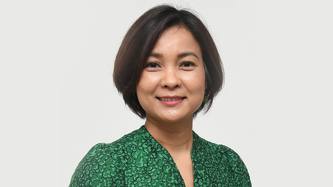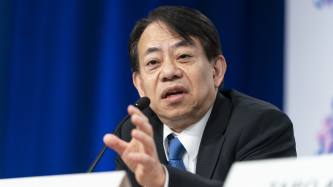Kazakhstan’s economy has doubled in the past five years and, after an impressive 9.3% last year, new central bank governor Anvar Saidenov expects it will grow between 7% and 7.5% next year. Other analysts, however, see no reason why last year’s performance cannot be sustained.
Eleven years after a chaotic independence, Kazakhstan surpassed its independence-level GDP to reach 6% by 2003, Mr Saidenov says. Since 2002, it has been a net creditor to the world.
By any measure, this is an extraordinary achievement, particularly in a country run by the iron hand of a former steel mill worker who had a technical education. President Nursultan Nazarbayev, 63, is one of only three leaders of the former Soviet Union’s 15 constituent republics who is still in power, and he plans to run again in 2006 for another seven-year term.
National currency
During the communist era, Kazakhstan was used as a source of minerals and a destination for exiles, notably Chechens and Volga Germans.
Following an independence it did not ask for in 1991, Kazakhstan suffered the shock waves from the collapse of Russia, its main trading partner. With much hesitation, Mr Nazarbayev introduced a national currency, the tenge, in 1993.
Big mistake
At first the National Bank was subordinate to the parliament, which left it a pawn in disputes between the parliament and the government. But in 1995, under pressure from the nascent oligarch class, the government embarked on its biggest mistake, over the strenuous objections of the central bank.
Because most large companies owed money to each other and taxes to the government, their owners asked for loans to pay off their debts. But when the government obliged, this did not happen, says Grigori Marchenko, who was governor of the central bank until the end of last year, when he became first deputy prime minister. In conditions of inflation, many companies instead used the loans to buy dollars and failed to pay their debts. The tenge lost 75% of its value in a month and inflation soared to 46% a month.
Law of independence
“It was purely something of our own making, it was very embarrassing,” Mr Marchenko recalled in an interview. After that, he said, the president has always been very supportive of the bank. In 1995, the parliament passed a law on the central bank, based on a 1957 law that created today’s Bundesbank in Germany, that sealed its independence.
So when Russia defaulted on its debt in 1998, Kazakhstan’s economy barely felt the blow: the tenge lost half its value over a whole year. By 2000, the economy had rebounded and growth reached a whopping 13.2% in 2001. Inflation has been steadily dropping, stabilising at about 6% last year.
Today, while banking and financing are growing at about 50% a year, according to Mr Marchenko, other sectors are growing fast too. Food processing, at 30% a year, is one example.
Oil remains the engine of the economy. Exports are rising at the rate of 15% a year and last year production passed one million barrels per day.
It is expected to reach triple that amount by the end of the next decade, although given the prickly relations between the government and the foreign oil companies investing in the country, it could take longer.
Oil fund
While dollars have been gushing in, the government has prevented excessive evaluation of the tenge by sending hundreds of millions a year into the oil fund, which now stands at $3.7bn. Without this, the balance of payments would have been in surplus, to the rate of 1.5% of GDP.
Government strategy has been that an overvalued tenge would nip in the bud the country’s non-mineral growth and its struggling small and medium-sized enterprises (SMEs). Foreign advisers agree but say that a hostile, underpaid and rapacious bureaucracy is a far greater threat to the growth of SMEs.
Another reason to defer spending has been that reforms of the health and education sectors have been lagging far behind those in the financial sector.
Kazakh sources say Mr Marchenko, who enjoys a reputation for integrity and efficiency, has been specifically asked to reform the health and education sectors from his perch as first deputy prime minister in time for the major spending increases expected in the years ahead. But much depends on whether President Nazarbayev will allow Mr Marchenko to choose the ministers he is supervising, observers say.
The task of reforming the non-financial, non-privatised part of the government is both daunting and urgent. “Kazakhstan cannot sustain a 21st-century economy with its current education levels,” says one Western ambassador.
Still, many in the donor community feel Kazakhstan’s purse-strings are being kept too tight even now. “They are not addressing the needs of the poorest segment of the population,” said a senior official at an international lending organisation.
“The people in the countryside suffered tremendously from the collapse of the Soviet economy, and they haven’t gotten any trickle-down from the new economy, which benefited mostly the cities.”
Corruption problem
Foreign criticism is also levelled at the country’s pervasive corruption. From policemen who take bribes for traffic offences (drunk-driving rates a $100 fine, a driver’s license costs $70) to teachers who will not pass students without a gift, everyone seems to be on the take. Even in the private sector, a culture of kickbacks prevails.
Thus, few seem bothered that James Giffen, Mr Nazarbayev’s close adviser on oil matters, goes on trial in New York in October on charges of having funnelled $60m to the president and another $18m to his then oil minister. About $120m in Swiss accounts controlled by both men and their relatives have been frozen since 2000, says a Swiss judicial source familiar with the case.
Mr Giffen has denied the charges and is restricted to the New York area while out on bail. But his pocket merchant bank, Mercator Corp, continues to advise the government in negotiations with the consortium exploiting Kashagan, say members of the consortium. And several consortium sources have confirmed that Mr Giffen’s son David, has represented him at the negotiating table.
While the mainstream press is cowed into ignoring the subject of presidential ethics, the tiny opposition press, while freely available, enjoys little credibility.
“This society is divided between those who are in a position to take bribes and those who aren’t,” says historian Nurbulat Massanov. “Ethics don’t come into the equation.”
Partly because of this climate – and because foreigners often complain contractual obligations are often not respected – non-mineral foreign investment, with the notable exceptions of a Phillip Morris tobacco plant and a Heineken brewery, has been negligible. Another reason cited by foreign companies is that the market of 15 million is too small and remote.
Still, chairman of ATF Bank Timur Issatayev says there is so much inflow now that foreign investment is no longer needed: “What we need is expertise, not cash.”
Rewards of reform
Today, Kazakhstan is reaping the rewards of financial reforms that Russia, for example, is only now embarking on. The result is that the Kazakh leadership sees no reason to give in to Western calls for less arbitrary treatment of foreign investors or more social spending.
Observers believe that many Kazakh officials see no need to either curb corruption or allow its exposure by removing the shackles on the media – and with the economy booming and oil income steadily growing, it may be hard to convince them that they should.











